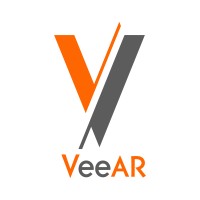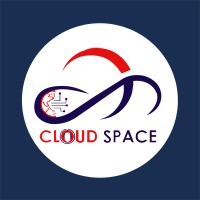

Principal Data and AI Architect
⭐ - Featured Role | Apply direct with Data Freelance Hub
This role is for a Principal Data and AI Architect with a contract length of "unknown," offering a pay rate of "unknown." Required skills include 10-15 years in data architecture, AI/ML solutions, and experience in regulated industries. A Bachelor's degree is mandatory, with preferred certifications in AI, ML, or Cloud Architecture.
🌎 - Country
United States
💱 - Currency
$ USD
-
💰 - Day rate
-
🗓️ - Date discovered
August 21, 2025
🕒 - Project duration
Unknown
-
🏝️ - Location type
Hybrid
-
📄 - Contract type
Unknown
-
🔒 - Security clearance
Unknown
-
📍 - Location detailed
Libertyville, IL
-
🧠 - Skills detailed
#DevOps #Data Engineering #GCP (Google Cloud Platform) #GDPR (General Data Protection Regulation) #PyTorch #AWS (Amazon Web Services) #Microsoft Azure #Databricks #Cloud #Snowflake #ML (Machine Learning) #Data Privacy #Security #TensorFlow #BI (Business Intelligence) #SAP #MLflow #Microsoft Power BI #Azure #Compliance #Automation #AI (Artificial Intelligence) #Data Architecture #Data Pipeline #Computer Science #Kubernetes
Role description
Requirements:
• 10–15 years of progressive experience in data architecture, machine learning engineering, and AI platform development.
• Proven track record delivering production-grade AI/ML solutions in cloud and/or edge environments.
• Experience in regulated industries such as MedTech, Pharma, or Healthcare; strong preference for familiarity with compliance and validation workflows.
• Hands-on expertise with modern data and AI technologies, such as Databricks, Snowflake, MLflow, Kubernetes, TensorFlow, and PyTorch.
• Bachelor's (required) or Master's degree in Computer Science, Information Systems, Engineering, or a related technical field.
• Advanced degree and/or certifications in one or more of the following areas is preferred: Artificial Intelligence, Machine Learning, Data Engineering, Cloud Architecture, or Enterprise Solution Architecture.
• Relevant certifications may include:
• Microsoft Certified: Azure Solutions Architect Expert
• Azure AI Engineer Associate
• Azure Data Engineer Associate
• AWS Certified Solutions Architect – Professional
• Databricks Certified Data Engineer Professional
Specialized Skills/Technical Knowledge:
• Deep expertise in AI/ML model development, including MLOps practices, model lifecycle management, and responsible AI principles (explainability, bias mitigation, auditability).
• Strong understanding of cloud-native data architecture, including Microsoft Azure (preferred), AWS, or GCP.
• Hands-on experience with the Microsoft Fabric ecosystem, including Data Factory, OneLake, Power BI, and integration with Azure AI and DevOps services.
• Experience designing and integrating data pipelines across SAP data platforms (S/4HANA, BW, Datasphere), Microsoft Dynamics, and Product Lifecycle Management (PLM) systems (e.g., Aras).
• Proficiency with Generative AI frameworks, Copilot integrations, and prompt engineering for productivity and business automation use cases.
• In-depth knowledge of regulatory frameworks such as ISO 13485, FDA 21 CFR Part 11, and data privacy laws (e.g., HIPAA, GDPR), especially in handling PHI/PII securely.
• Proven ability to embed privacy, security, and compliance controls into AI and data solutions, including encryption, access governance, and audit trails.
• Exceptional collaboration and communication skills, with the ability to influence technical and non-technical stakeholders at all organizational levels.
• Passion for healthcare innovation and a strong commitment to improving patient outcomes through ethical and intelligent use of data and AI.
• 20% travel; domestic and international
Requirements:
• 10–15 years of progressive experience in data architecture, machine learning engineering, and AI platform development.
• Proven track record delivering production-grade AI/ML solutions in cloud and/or edge environments.
• Experience in regulated industries such as MedTech, Pharma, or Healthcare; strong preference for familiarity with compliance and validation workflows.
• Hands-on expertise with modern data and AI technologies, such as Databricks, Snowflake, MLflow, Kubernetes, TensorFlow, and PyTorch.
• Bachelor's (required) or Master's degree in Computer Science, Information Systems, Engineering, or a related technical field.
• Advanced degree and/or certifications in one or more of the following areas is preferred: Artificial Intelligence, Machine Learning, Data Engineering, Cloud Architecture, or Enterprise Solution Architecture.
• Relevant certifications may include:
• Microsoft Certified: Azure Solutions Architect Expert
• Azure AI Engineer Associate
• Azure Data Engineer Associate
• AWS Certified Solutions Architect – Professional
• Databricks Certified Data Engineer Professional
Specialized Skills/Technical Knowledge:
• Deep expertise in AI/ML model development, including MLOps practices, model lifecycle management, and responsible AI principles (explainability, bias mitigation, auditability).
• Strong understanding of cloud-native data architecture, including Microsoft Azure (preferred), AWS, or GCP.
• Hands-on experience with the Microsoft Fabric ecosystem, including Data Factory, OneLake, Power BI, and integration with Azure AI and DevOps services.
• Experience designing and integrating data pipelines across SAP data platforms (S/4HANA, BW, Datasphere), Microsoft Dynamics, and Product Lifecycle Management (PLM) systems (e.g., Aras).
• Proficiency with Generative AI frameworks, Copilot integrations, and prompt engineering for productivity and business automation use cases.
• In-depth knowledge of regulatory frameworks such as ISO 13485, FDA 21 CFR Part 11, and data privacy laws (e.g., HIPAA, GDPR), especially in handling PHI/PII securely.
• Proven ability to embed privacy, security, and compliance controls into AI and data solutions, including encryption, access governance, and audit trails.
• Exceptional collaboration and communication skills, with the ability to influence technical and non-technical stakeholders at all organizational levels.
• Passion for healthcare innovation and a strong commitment to improving patient outcomes through ethical and intelligent use of data and AI.
• 20% travel; domestic and international






